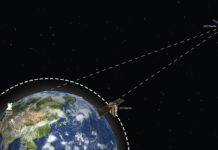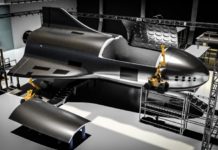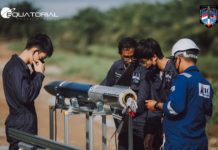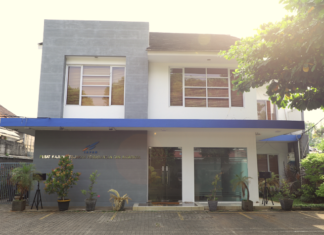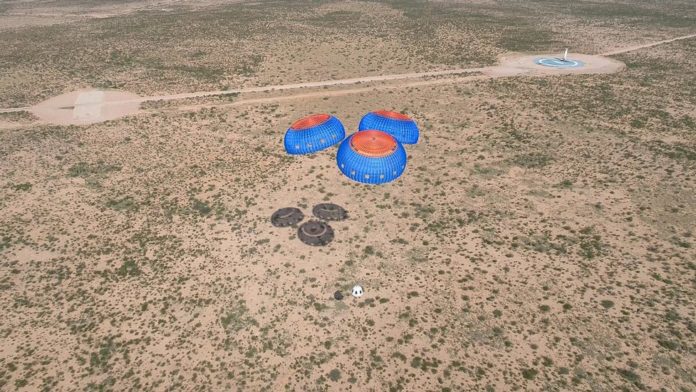
Blue Origin today successfully launched the New Shepard space vehicle’s Mission 9, carrying payloads from private companies, universities and space agencies.
A statement by the company indicated that the mission was a success for both the booster and capsule. “The escape motor was fired shortly after booster separation. The Crew Capsule was pushed hard by the escape test and we stressed the rocket to test that astronauts can get away from an anomaly at any time during flight. Most importantly, astronauts would have had an exhilarating ride and safe landing,” said the statement.
“This test on M9 allowed us to finally characterize escape motor performance in the near-vacuum of space and guarantee that we can safely return our astronauts in any phase of flight.”
The company is testing the crew capsule for eventual manned flights with 6 crew at a time; currently, it is carrying experimental payloads on behalf of private and government organisations.
mu Space Payload
It was the first time New Shepard carried a payload from Asia on board. The six-kilogram payload, sent by satellite and space company mu Space Corp, contains experiments from several universities and space agencies in Thailand:
- Bleeding Preventive Device. Queen Sirikit National Institute of Child Health has sent a device they developed to prevent profuse bleeding. The institute aims to test the quality of the device after microgravity exposure.
- Carbon Nanotube. Chulalongkorn University intended to study how space affects the structural and electronic properties of carbon nanotube, a material that is considered to be 100 times stronger than steel.
- Vacuum-Sealed Food in Microgravity. This experiment aims to know how microgravity affects the texture, taste and smell of food. Geo-Informatics and Space Technology Development Agency (GISTDA), a space agency in Thailand, will use the experiment findings to develop techniques of preparing food to be consumed in space.
The payload also included a number of items from King Mongkut’s Institute of Technology Ladkrabang and National Astronomical Research Institute of Thailand (NARIT).
mu Space, on their part, had sent textile materials that they plan to use on the space suit and apparels they will soon develop. The company also sent a jersey of the Thai national football team.
CEO and founder of mu Space James Yenbamroong congratulated the mu Space team and project partners in Thailand who collectively gathered experiments and items for the microgravity flight. Before the flight, he had said: “We are excited to join the upcoming New Shepard flight. We are really curious how microgravity affects the structure and properties of things, and we hope this flight will help us understand the science behind it.”

